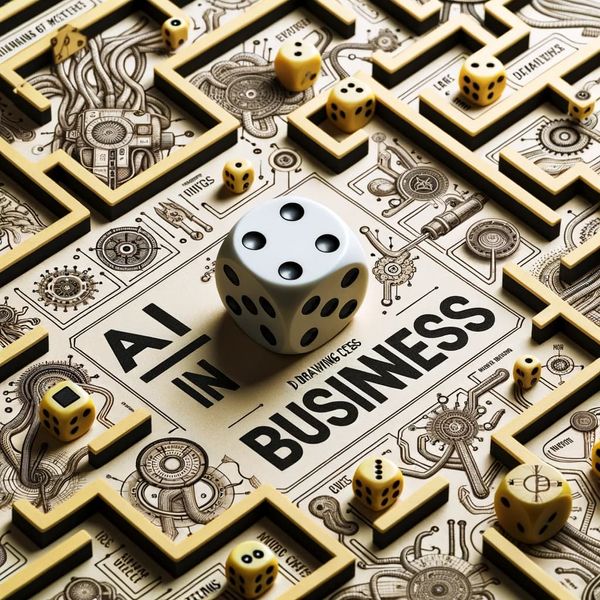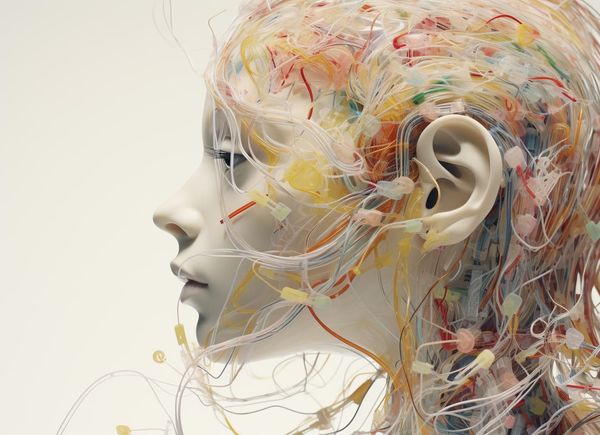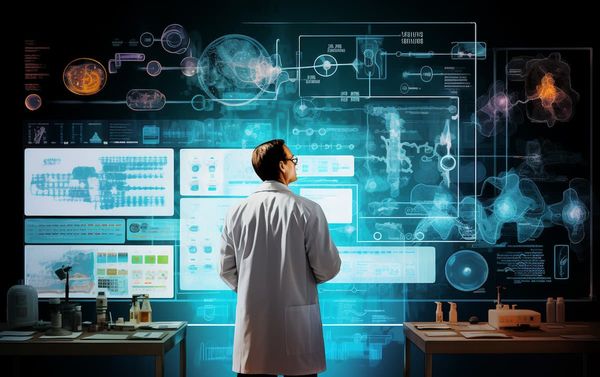Artificial intelligence (AI) is witnessing rapid advancements in recent years, with the emergence of generative AI tools like ChatGPT grabbing the attention of experts and enthusiasts alike. This blog article delves into the intelligence, usefulness, and potential future impact of ChatGPT on various industries, AI development, and the pursuit of artificial general intelligence (AGI).
1. The Intelligence Quotient of ChatGPT
It is essential to understand the extent of intelligence possessed by AI tools like ChatGPT before gauging their potential impact. Contrary to popular belief, ChatGPT's intelligence is practically zero when measured scientifically. This is because the AI's ability to deal with unseen problems is minimal, and it can only mimic natural language processing based on the data it has been fed.
1.1 Defining Intelligence
To evaluate AI tools' level of intelligence, one must first define intelligence. Intelligence can be described as an entity's ability to deal with unseen or unencountered problems effectively. In other words, the entity's adaptability and problem-solving abilities in novel situations determine its intelligence.
1.2 ChatGPT's Limitations
Despite appearing intelligent, ChatGPT's problem-solving capabilities are limited to previously encountered data. It lacks the ability to tackle completely new problems or situations, thus rendering its intelligence quotient zero. This reveals that while ChatGPT is a remarkably useful tool in certain applications, its intelligence is limited and should not be mistaken for AGI.
2. ChatGPT's Usefulness Revolution
Though ChatGPT is not an embodiment of artificial intelligence, it has sparked a revolution in terms of its usefulness across various industries. By combining existing pieces of technology, ChatGPT has evolved into an incredibly useful tool, transforming the way people approach work and creativity.
2.1 Impacts on Creative Industries
ChatGPT's ability to generate text, images, and even music has made significant waves in creative industries, putting pressure on professions like illustrators and actors. The tool's ability to quickly generate content based on user input has facilitated accelerated workflows and reduced costs, enabling businesses to thrive in a competitive landscape.
2.2 Enhancing Human Creativity
Despite its limitations, ChatGPT has proven to be a valuable asset in enhancing human creativity. By drawing from a vast reservoir of data, the tool can generate a wide array of creative solutions to problems—an aspect where it often outperforms humans. This development signifies how AI tools like ChatGPT can complement human creativity rather than replace it, fostering a symbiotic relationship between humans and machines.
3. ChatGPT and the Future of AI
As ChatGPT continues to garner attention and praise, the question remains: Is this AI tool a stepping stone toward AGI, or merely a blip on the radar? While ChatGPT might not directly contribute to AGI's development, it plays a crucial role in accelerating technological advancements.
3.1 The Path to Artificial General Intelligence
The pursuit of AGI is fraught with challenges and uncertainty, and AI experts remain divided on the role of tools like ChatGPT in this quest. Some argue that focusing on large language models might hinder AGI's development, as the technology has its limitations. However, there's no denying that ChatGPT's usefulness in various fields can indirectly contribute to the progress toward AGI.
3.2 The AI Revolution
The emergence of ChatGPT is widely considered a revolution in AI, comparable to the early days of Google, social media, and other groundbreaking technological achievements. Its multimodal capabilities, which include text, images, videos, and music, are slated to become even more advanced in the coming years, further transforming industries and AI development.
4. Other Developing Conerns to Keep An Eye On
There are also several developing issues and points that may warrant further discussion. These include the public's perception of AI, the potential ethical concerns, and the importance of responsible AI development.
4.1 Public Perception of AI
The script briefly mentions the public's fascination with AI tools like ChatGPT, which might lead to an overestimation of their intelligence capabilities. The case of the Chess Turk automaton from 250 years ago serves as a historical example of how public perception can be swayed by seemingly intelligent machines, despite their limited abilities. It's essential to manage public expectations and accurately communicate the capabilities and limitations of AI tools to prevent unwarranted fears or inflated expectations.
4.2 Ethical Concerns
As AI tools like ChatGPT become more advanced and integrated into various industries, ethical concerns are bound to arise. For instance, the replacement of human workers in creative industries may lead to job loss and economic disruption. Additionally, the potential misuse of AI-generated content, such as deepfakes or fake news, must be addressed to ensure the technology is used responsibly and ethically.
4.3 Responsible AI Development
The rapid advancements in AI technologies like ChatGPT underscore the importance of responsible AI development. As AI tools become more integrated into our daily lives, developers and researchers must prioritize transparency, fairness, and accountability. This includes addressing biases in AI systems, ensuring data privacy, and developing AI governance frameworks to regulate the technology effectively.
4.5 Fostering Collaboration Between Humans and AI
The script highlights how ChatGPT can enhance human creativity, suggesting a symbiotic relationship between humans and AI tools. Emphasizing collaboration between humans and AI, rather than competition, can lead to more productive and innovative outcomes. By focusing on how AI tools can complement human skills, we can create an environment where both humans and AI systems can thrive and contribute to overall progress.
4.6 The Role of Education and Adaptability
As AI tools like ChatGPT continue to evolve, the need for education and adaptability becomes increasingly apparent. To navigate the rapidly changing landscape, individuals must develop new skill sets to work alongside AI tools effectively. This may include learning how to interact with AI systems, understanding the underlying technologies, and acquiring the critical thinking skills necessary to assess AI-generated content. By fostering a culture of continuous learning and adaptability, society can better prepare for the inevitable advancements in AI.
Takeaway
The rapid advancements in AI tools like ChatGPT have undeniably transformed various industries, enhanced human creativity, and contributed to the ongoing AI revolution. Although ChatGPT's intelligence is limited and not an embodiment of AGI, its usefulness across different fields has the potential to indirectly contribute to the progress toward AGI.
As AI technologies continue to evolve, it is crucial to address public perception, ethical concerns, and the need for responsible AI development. Encouraging collaboration between humans and AI, fostering education and adaptability, and ensuring transparency, fairness, and accountability are essential for navigating the ever-changing AI landscape. By embracing these principles, we can harness the full potential of AI tools like ChatGPT, paving the way for a symbiotic relationship between humans and machines that drives innovation and progress.








